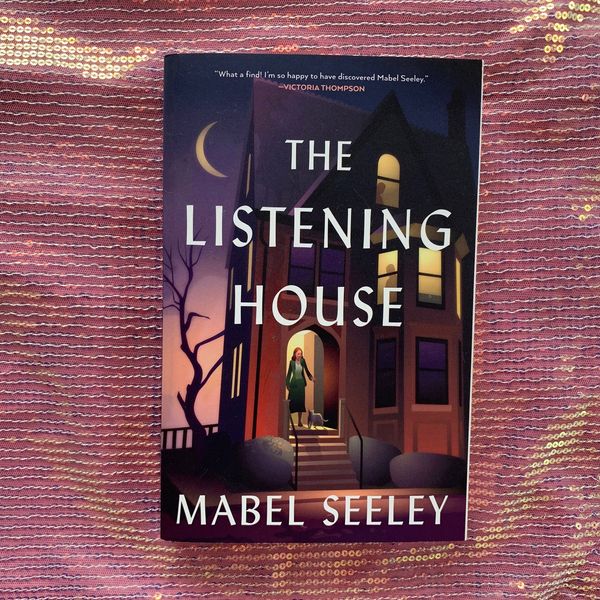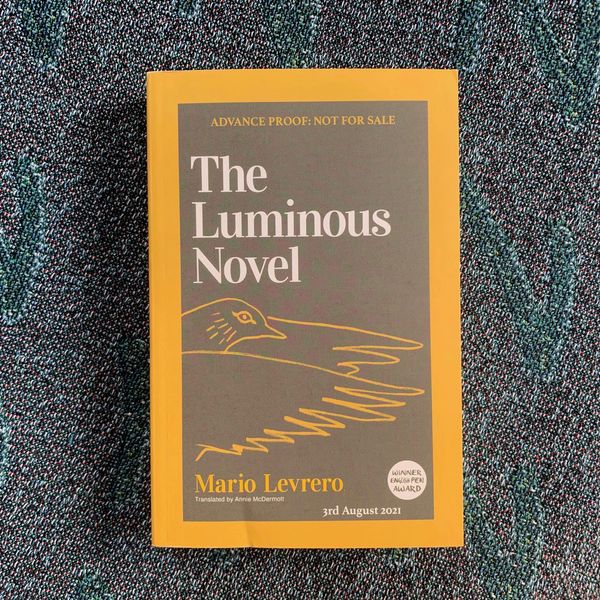
People never believe me when I explain that I’m a slow reader. They either think I’m being modest or lying (why lie about something so mundane?). My rate is about 12 pages per hour; I can churn through a little more if the book is pulpy. I’m able to read at a faster tempo, if by “reading” you mean “recognizing words,” but that’s not what you mean.
Given the fact that I write about books in exchange for money, my reading speed bears on my earning ability. It bears heavily. For this reason, I periodically make an effort to rev things up. I have eliminated subvocalization and used a pen to “set a reading pace.” I have tried conditioning drills to increase my vision span. All pointless! It takes an incredibly long time to compile this newsletter — if I tallied the hours, you would simply not believe me. Which is, of course, the reason I love it: There is a rampaging perversion at work when a person insists on condensing hundreds of hours and pages into a medium-length monthly email. The asymmetry of effort and result is a source of unending private amusement … joy, even!
—Molly
The Listening House by Mabel Seeley
Fiction, 1938
Buried-treasure alert! This twisty, recently reissued whodunnit is a bonbon spiked with poison. Gwynne Dacres is a copywriter who moves into a shady boardinghouse during the pits of the Great Depression. The landlady is “a deranged old semi-lunatic with delusions of persecution,” and the other roomers are — as you might expect — not who they seem. Murders commence! And Gwynne, who has a feisty eye for detail and a wisecracking mouth, is on the case.
The Listening House is packed with vocabulary that was apparently in high fashion in 1938 and should probably make a comeback — words like rummage and burglarious and marauder. Characters are always having “coffee and a sandwich” for dinner, “quarrelling” (at worst, “feuding”), and threatening to spank each other with a table leg. Simpler times.
This is a clever book to reissue because it has all the charms of a period piece but without the dust; I’d believe you if you told me it was written this year. Soon it will be made into an acclaimed miniseries. (Well, nothing has been announced — but I’m guessing it’ll happen. “Manifesting,” if you will.)
RIYL: Knives Out, sticking your nose where it don’t belong, mysteries, bustling about
The Luminous Novel by Mario Levrero
Fiction, August 3
I’ll start by quoting a devastating review of this novel that recently appeared in Publishers Weekly: “It’s a credible documentation of writer’s block and narcissism, but readers will be left wondering what purpose it serves.” Wow! It’s true that you don’t so much read this book as exist at the mercy of it, but whoever panned the book — or rather, its recent English translation, since the celebrated Uruguayan author who wrote it died in 2004 — missed the point. It’s a novel about being in tune with the details of life that are most freaky-deaky, most humdrum, most comical, and most enraging. Does that sound purposeless to you?!
The narrator is a 60-year-old novelist who has recently won a Guggenheim grant and is trying to complete a masterpiece. What follows are hundreds of pages of minutiae, as the novelist documents his days of playing Minesweeper, observing pigeons, monitoring his blood pressure, analyzing his phobias, composing faulty computer programs, planning to shave his beard, not shaving his beard, tugging the strands of his overlong beard with his fingers, and so on. This is a lengthy book with no plot, and I read the whole thing despite how it conflicted with my economic interests (see intro). That’s the endorsement, and I’m sticking to it.
RIYL: Karl Ove Knausgaard, Robert Coover, the more infuriating Dostoevsky characters
A Complicated Kindness by Miriam Toews
Fiction, 2004
“We’re Mennonites. As far as I know, we are the most embarrassing sub-sect of people to belong to if you’re a teenager.” Thus speaks Nomi Nickel, a 16-year-old involuntary member of a denomination that forbids her from dancing, watching movies, swimming, drinking, and staying up past nine o’clock. (Plus all the usual vices.)
Nomi’s home is a small town in Canada where American tourists come to observe their folksy customs: the bonnets, butter-churning, outdoor bread ovens. It’s an insular place. Nomi’s uncle is the pastor of the town church; her parents are second cousins. When we meet Nomi, her mother and sister have both vanished, leaving her alone with her incomprehensible father. In an indirect way, the novel is about a teenager puzzling out the reasons that half her family evaporated, but mostly it is a coming-of-age tale combined with a (fictional) ethnography of a reverent, repressive, otherworldly, shame-riddled community. If you’re new to Toews, I’d start elsewhere — namely with 2018’s Women Talking — but if you’re ready to go Deep Mennonite, this is your book.
RIYL: Vendela Vida, living quietly with your disappointments, Marilynne Robinson, anthropology, blaspheming
WHY DON’T YOU …
Laugh until your vocal cords are drier than two STRIPS OF BEEF JERKY flapping in a desert breeze, with Tarantino’s novelization of Once Upon a Time in Hollywood?
Develop a SEVERE ATTITUDE PROBLEM under expert tutelage?
Adjust your falsies and pour yourself a glass of Pink Zin while you dig into a thriller about a PSYCHOTIC UPPER-CRUST HOUSEWIFE?
Earn your graduate degree in MEN’S STUDIES?
Embrace a compelling theoretical argument in favor of KINDNESS?
Laugh and cry and LAUGH AND CRY and laugh and cry?
SUGGESTED PAIRING
Pair the heat of August with a nasty fasty, which is my term for gritty, murderous page-turners
More From This Series
- Matrix and 9 Other Reads I Can’t Get Out of My Head
- The Plot and 8 Other Reads I Can’t Get Out of My Head
- Intimacies and 9 Other Reads I Can’t Get Out of My Head



